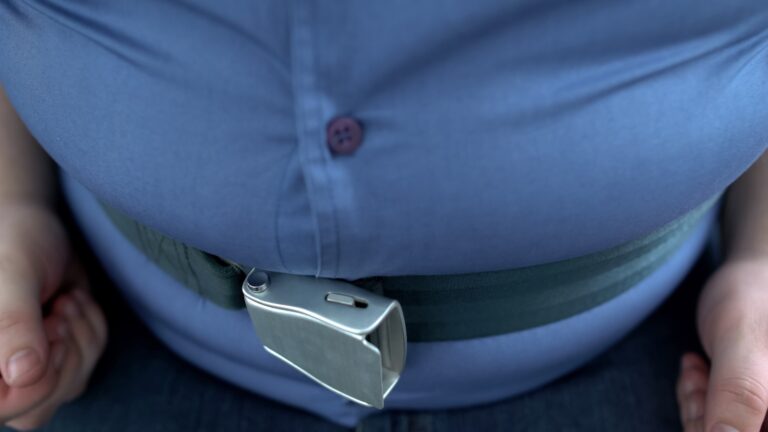More than one in 10 people around the world are classified as obese, defined as having a BMI (body-mass index) of 30 or higher. In the United States, that number jumps dramatically to one out of every three American adults.
For people with a BMI over 40, bariatric surgery has become the gold standard for weight reduction, either by implanting a gastric band or causing food to bypass the stomach.
The surgery, which can lead to significant side effects, usually is not covered by insurance for people with a BMI between 30 and 40. Other options such as intra-gastric balloons are only temporarily effective.
Israeli startup Nitinotes is developing a technology that will bring the long-term benefits of bariatric surgery to individuals with a lower BMI, while avoiding the dangers of surgery and potentially at a lower cost.
Nitinotes’ Endozip is an automated suturing system performed via endoscopy – through the mouth, rather than under the knife – to connect the anterior and posterior walls of the stomach.
“The knife will become unused in a decade or two. All procedures are going to be noninvasive,” Nitinotes CEO Raz Bar-On tells ISRAEL21c.
Once the surgeon has everything lined up and the Endozip device in place in a patient’s stomach, the surgeon simply presses a button and Endozip does the stitching with consistent accuracy.
“This makes the procedure more reproducible,” Bar-On says. “It depends on the device rather than the hands of the doctor, which results in a shorter learning curve.”
Endozip is a single-use disposable device that comes with all the sutures and clips required for the procedure. That means no cleaning and sterilizing is required.
Bar-On envisions Endozip being used as an outpatient procedure under minimal anesthesia, rather than in an operating room with an in-hospital recovery period. The patient should be able to go home the same day.
A few years to commercialization
Endozip has been tested on animals, on ex-vivo human tissue (outside of the body), and on 13 patients under the direction of Dr. Lopez Nava, director of bariatric endoscopy at HM Sanchinarro University Hospital in Madrid.
Although it will take at least three years to complete all the clinical requirements for US and EU regulatory approvals, the company has attracted nearly $6 million in investments from Elron and Accelmed. Elron formerly owned a quarter of Israel’s Given Imaging, which was sold to Covidien in 2014 for some $1 billion.

Founded in 2014 in Peregrine Ventures’ Incentive Incubator in Ariel, Nitinotes employs seven people and recently moved to an office in Caesarea.
About the name: “Niti” is short for nitinol (or nickel titanium), a super elastic metal used in medical devices, while “notes” is an acronym for “natural orifice transluminal endoscopic surgery.” Nitinotes originally planned to use nitinol in Endozip. The technology changed but the name stuck.
For now, Bar-On says, Nitinotes is “focusing on R&D and clinical activity. We want to create a good product. Only when we’re happy with the results will we start to think about marketing and sales.”
Because the weight-loss solutions market opportunity is worth billions of dollars, Nitinotes has plenty of competition.
Bar-On points to Apollo’s OverStich and USGI’s POSE, both of which enter the stomach through the mouth to reduce the volume of the stomach using sutures, but which Bar-On describes as “cumbersome, needing a lot of training and relying on the capabilities of the doctor, not the system.”
A sampling of other Israeli obesity solutions
Israel has many other weight-loss endeavors that go beyond surgery or sutures. For example:
Raziel Therapeutics is developing an injectable drug that gets rid of old fat cells and prevents the development of new ones. A first trial with 24 patients has been conducted.
Nutrino is building an app that provides personalized “FoodPrint” recommendations on what to eat and how much to exercise.
Beck Medical’s NozNoz is a small silicon accessory inserted into the nose to block the sense of smell, thereby reducing appetite.
Nobesity takes a similar prophylactic approach, but for the mouth – its device goes between the teeth and slows the act of chewing.
Epitomee has developed a pill that inflates in the abdomen to simulate the feeling of a full stomach.
Bar-On cautions that no weight-loss technology — including Nitinotes’ Endozip and bariatric surgery — is a panacea. “It’s not a magic solution,” he tells ISRAEL21c. “You need to change your behavior to keep the weight off.”
For more information, click here

















